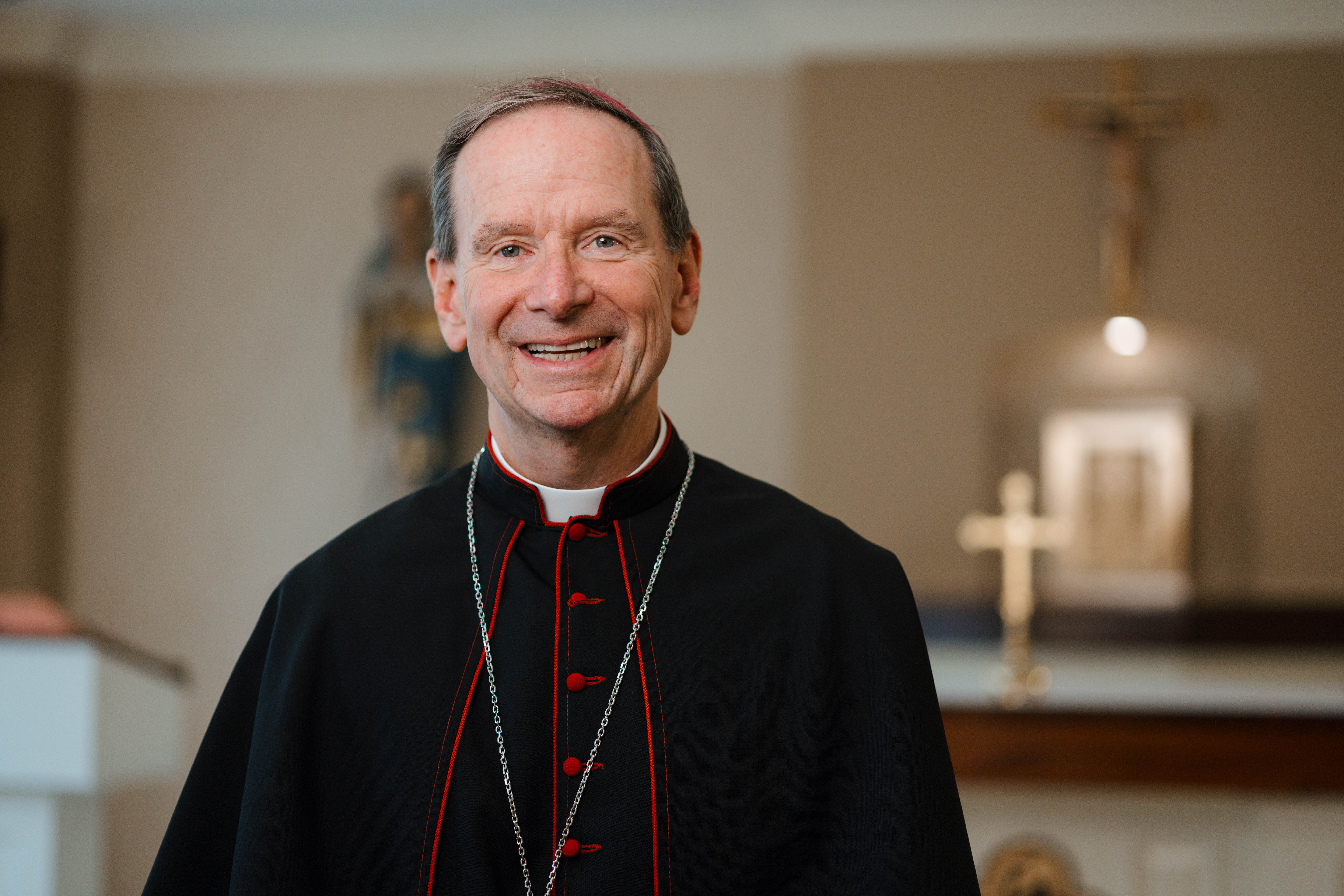
Catholic U.S. House Democrats cited Church teaching in defense of the dignity of migrants as Trump administration officials defend immigration enforcement.


Catholic U.S. House Democrats cited Church teaching in defense of the dignity of migrants as Trump administration officials defend immigration enforcement.

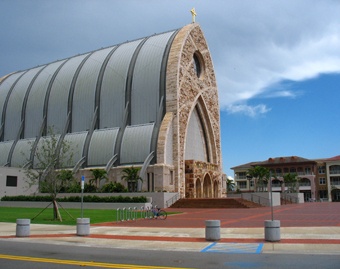
Ave Maria University, a Catholic liberal arts university in Florida, is opening a new campus at a former monastery in rural Ireland. Learn more in this Catholic education news roundup.

![Multiple U.S. bishops join call for Notre Dame to rescind appointment of pro-abortion advocate #Catholic A growing chorus of U.S. bishops on Feb. 11 called on the University of Notre Dame to rescind the controversial appointment of a pro-abortion advocate to lead one of the revered Catholic institution’s academic departments. Earlier in the day Fort Wayne-South Bend, Indiana, Bishop Kevin Rhoades issued a statement criticizing the university for appointing global affairs Professor Susan Ostermann as director of the school’s Liu Institute for Asia and Asian Studies.Rhoades said the school’s appointment of Ostermann — in spite of her public and uncompromising support for abortion — had caused a scandal and threatened Notre Dame’s Catholic identity and mission. He urged the school to rescind the nomination before it goes into effect on July 1.Several of Rhoades’ fellow prelates subsequently joined the call for Notre Dame to reverse Ostermann’s appointment. Among them was Denver Archbishop Samuel Aquila, who in a post on X thanked Rhoades for his statement and said that the school’s decision “tarnishes Our Lady’s university and what it means to be Catholic.”“I pray that those who can rescind this terrible appointment will do so! Pray for the conversion of hearts!” the archbishop wrote.TweetWinona-Rochester, Minnesota, Bishop Robert Barron similarly offered his “strong support” for Rhoades’ statement, arguing that Ostermann is “not simply ‘pro-choice’” on the question of abortion. Rather, “she is a sharp critic of the pro-life position and those who advocate it,” Barron said, pointing out that Ostermann has “characterize[d] the anti-abortion stance as rooted in white supremacy and racism” and “insinuated that the Catholic commitment to integral human development implies the support of abortion rights.”TweetBarron said he has “strong connections to and deep affections” for the university. “I believe that going ahead with this appointment is repugnant to the identity and mission of that great center of Catholic learning,” he wrote. Fort Worth, Texas, Bishop Michael Olson also offered his support for Rhoades “in his carrying out of his pastoral responsibility.”TweetThe bishop called for prayers that the university might “reconsider this distressing decision.” Support for Rhoades did not just come from his brother bishops. Actress and outspoken Catholic pro-life advocate Patricia Heaton thanked both Barron and Rhoades for their statements on Feb. 11.Former U.S. Rep. Dan Lipinski, who was named as a Pope Leo XIII Fellow on Social Thought at the University of Dallas in 2023, also thanked Rhoades, writing on X: “Public witness is extremely powerful and must be used to point all to the truth.”Though backlash to the appointment has been growing for weeks, the university has not backed off the controversial decision. The school told the Irish Rover as recently as Feb. 8 that it had “not changed its position” on Ostermann’s leadership of the department. Ostermann herself told the National Catholic Register on Jan. 29 that her role at the school “is to support the diverse research of our scholars and students, not to advance a personal political agenda.”“I respect Notre Dame’s institutional position on the sanctity of life at every stage,” she told the Register, describing herself as “inspired by the university’s focus on integral human development, which calls us to promote the dignity and flourishing of every person.” Multiple U.S. bishops join call for Notre Dame to rescind appointment of pro-abortion advocate #Catholic A growing chorus of U.S. bishops on Feb. 11 called on the University of Notre Dame to rescind the controversial appointment of a pro-abortion advocate to lead one of the revered Catholic institution’s academic departments. Earlier in the day Fort Wayne-South Bend, Indiana, Bishop Kevin Rhoades issued a statement criticizing the university for appointing global affairs Professor Susan Ostermann as director of the school’s Liu Institute for Asia and Asian Studies.Rhoades said the school’s appointment of Ostermann — in spite of her public and uncompromising support for abortion — had caused a scandal and threatened Notre Dame’s Catholic identity and mission. He urged the school to rescind the nomination before it goes into effect on July 1.Several of Rhoades’ fellow prelates subsequently joined the call for Notre Dame to reverse Ostermann’s appointment. Among them was Denver Archbishop Samuel Aquila, who in a post on X thanked Rhoades for his statement and said that the school’s decision “tarnishes Our Lady’s university and what it means to be Catholic.”“I pray that those who can rescind this terrible appointment will do so! Pray for the conversion of hearts!” the archbishop wrote.TweetWinona-Rochester, Minnesota, Bishop Robert Barron similarly offered his “strong support” for Rhoades’ statement, arguing that Ostermann is “not simply ‘pro-choice’” on the question of abortion. Rather, “she is a sharp critic of the pro-life position and those who advocate it,” Barron said, pointing out that Ostermann has “characterize[d] the anti-abortion stance as rooted in white supremacy and racism” and “insinuated that the Catholic commitment to integral human development implies the support of abortion rights.”TweetBarron said he has “strong connections to and deep affections” for the university. “I believe that going ahead with this appointment is repugnant to the identity and mission of that great center of Catholic learning,” he wrote. Fort Worth, Texas, Bishop Michael Olson also offered his support for Rhoades “in his carrying out of his pastoral responsibility.”TweetThe bishop called for prayers that the university might “reconsider this distressing decision.” Support for Rhoades did not just come from his brother bishops. Actress and outspoken Catholic pro-life advocate Patricia Heaton thanked both Barron and Rhoades for their statements on Feb. 11.Former U.S. Rep. Dan Lipinski, who was named as a Pope Leo XIII Fellow on Social Thought at the University of Dallas in 2023, also thanked Rhoades, writing on X: “Public witness is extremely powerful and must be used to point all to the truth.”Though backlash to the appointment has been growing for weeks, the university has not backed off the controversial decision. The school told the Irish Rover as recently as Feb. 8 that it had “not changed its position” on Ostermann’s leadership of the department. Ostermann herself told the National Catholic Register on Jan. 29 that her role at the school “is to support the diverse research of our scholars and students, not to advance a personal political agenda.”“I respect Notre Dame’s institutional position on the sanctity of life at every stage,” she told the Register, describing herself as “inspired by the university’s focus on integral human development, which calls us to promote the dignity and flourishing of every person.”](https://unitedyam.com/wp-content/uploads/2026/02/multiple-u-s-bishops-join-call-for-notre-dame-to-rescind-appointment-of-pro-abortion-advocate-catholic-a-growing-chorus-of-u-s-bishops-on-feb-11-called-on-the-university-of-notre-dame-to-rescind-t.jpg)
Though backlash to the appointment has been growing for weeks, the university has not backed off the controversial decision.
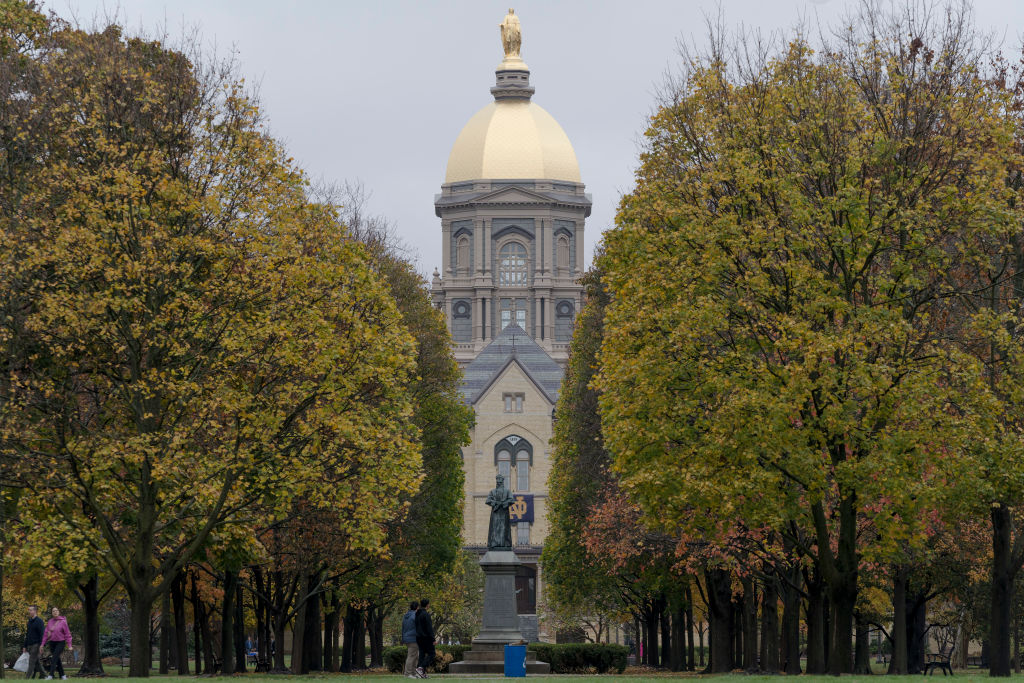
![BREAKING: Bishop Rhoades expresses ‘strong opposition’ to professor’s appointment at Notre Dame #Catholic Fort Wayne-South Bend, Indiana, Bishop Kevin Rhoades on Feb. 11 expressed “dismay” and “strong opposition” to the University of Notre Dame’s appointment of a pro-abortion professor to a leadership position at the school, with the bishop urging the university to “make things right” and rescind the appointment. Notre Dame has been at the center of controversy since early January when it named global affairs Professor Susan Ostermann as director of the school’s Liu Institute for Asia and Asian Studies. Ostermann is an outspoken pro-abortion advocate who has regularly criticized the pro-life movement, up to and including linking it to white supremacy and misogyny. The university has come under fire for the appointment, including from Catholic advocates and pro-life students at Notre Dame. Bishop urges school to retract appointmentIn his Feb. 11 statement, Rhoades — whose diocesan territory includes the university — said that since the controversy began he has read many of Ostermann’s pro-abortion op-eds and was moved to “express my dismay and my strong opposition to this appointment,” which he said is “causing scandal to the faithful of our diocese and beyond.”Ostermann’s public support of abortion and her “disparaging and inflammatory” criticism of the pro-life movement “go against a core principle of justice that is central to Notre Dame’s Catholic identity and mission,” the prelate said. The professor’s pro-abortion advocacy and her remarks about pro-life advocates “should disqualify her from an administrative and leadership role at a Catholic university,” Rhoades said.While expressing hope that Ostermann would “explicitly retract” her pro-abortion advocacy and change her mind on abortion, the bishop said that the appointment “understandably creates confusion” regarding Notre Dame’s Catholic mission and identity.Leadership appointments “have [a] profound impact on the integrity of Notre Dame’s public witness as a Catholic university,” Rhoades said.The bishop in issuing the letter cited the apostolic constitution Ex Corde Ecclesiae, which directs in part that bishops “have a particular responsibility to promote Catholic universities, and especially to promote and assist in the preservation and strengthening of their Catholic identity.”“I call upon the leadership of Notre Dame to rectify this situation,” Rhoades said. Noting that Ostermann’s appointment is not scheduled to go into effect until July 1, the prelate wrote: “There is still time to make things right.”The university did not immediately respond to a request for comment from EWTN News. Yet the school has defended Ostermann’s appointment since the controversy erupted, telling media that she is “a highly regarded political scientist and legal scholar” who is qualified to lead the Liu Institute. “Those who serve in leadership positions at Notre Dame do so with the clear understanding that their decision-making as leaders must be guided by and consistent with the university’s Catholic mission,” the school said. Among criticism from both within and without the school, at least two scholars have resigned their position at the Asian studies institute in response to the appointment. Robert Gimello, a research professor emeritus of theology who is an expert on Buddhism, told the National Catholic Register that his “continued formal association with a unit of the university led by such a person is, for me, simply unconscionable.”Diane Desierto, a professor of law and of global affairs, also told the Register that she had cut ties with the institute over the appointment. BREAKING: Bishop Rhoades expresses ‘strong opposition’ to professor’s appointment at Notre Dame #Catholic Fort Wayne-South Bend, Indiana, Bishop Kevin Rhoades on Feb. 11 expressed “dismay” and “strong opposition” to the University of Notre Dame’s appointment of a pro-abortion professor to a leadership position at the school, with the bishop urging the university to “make things right” and rescind the appointment. Notre Dame has been at the center of controversy since early January when it named global affairs Professor Susan Ostermann as director of the school’s Liu Institute for Asia and Asian Studies. Ostermann is an outspoken pro-abortion advocate who has regularly criticized the pro-life movement, up to and including linking it to white supremacy and misogyny. The university has come under fire for the appointment, including from Catholic advocates and pro-life students at Notre Dame. Bishop urges school to retract appointmentIn his Feb. 11 statement, Rhoades — whose diocesan territory includes the university — said that since the controversy began he has read many of Ostermann’s pro-abortion op-eds and was moved to “express my dismay and my strong opposition to this appointment,” which he said is “causing scandal to the faithful of our diocese and beyond.”Ostermann’s public support of abortion and her “disparaging and inflammatory” criticism of the pro-life movement “go against a core principle of justice that is central to Notre Dame’s Catholic identity and mission,” the prelate said. The professor’s pro-abortion advocacy and her remarks about pro-life advocates “should disqualify her from an administrative and leadership role at a Catholic university,” Rhoades said.While expressing hope that Ostermann would “explicitly retract” her pro-abortion advocacy and change her mind on abortion, the bishop said that the appointment “understandably creates confusion” regarding Notre Dame’s Catholic mission and identity.Leadership appointments “have [a] profound impact on the integrity of Notre Dame’s public witness as a Catholic university,” Rhoades said.The bishop in issuing the letter cited the apostolic constitution Ex Corde Ecclesiae, which directs in part that bishops “have a particular responsibility to promote Catholic universities, and especially to promote and assist in the preservation and strengthening of their Catholic identity.”“I call upon the leadership of Notre Dame to rectify this situation,” Rhoades said. Noting that Ostermann’s appointment is not scheduled to go into effect until July 1, the prelate wrote: “There is still time to make things right.”The university did not immediately respond to a request for comment from EWTN News. Yet the school has defended Ostermann’s appointment since the controversy erupted, telling media that she is “a highly regarded political scientist and legal scholar” who is qualified to lead the Liu Institute. “Those who serve in leadership positions at Notre Dame do so with the clear understanding that their decision-making as leaders must be guided by and consistent with the university’s Catholic mission,” the school said. Among criticism from both within and without the school, at least two scholars have resigned their position at the Asian studies institute in response to the appointment. Robert Gimello, a research professor emeritus of theology who is an expert on Buddhism, told the National Catholic Register that his “continued formal association with a unit of the university led by such a person is, for me, simply unconscionable.”Diane Desierto, a professor of law and of global affairs, also told the Register that she had cut ties with the institute over the appointment.](https://unitedyam.com/wp-content/uploads/2026/02/breaking-bishop-rhoades-expresses-strong-opposition-to-professors-appointment-at-notre-dame-catholic-fort-wayne-south-bend-indiana-bishop-kevin-rhoades-on-feb-11-expres-scaled.jpg)
Notre Dame has been at the center of controversy since early January when it named global affairs Professor Susan Ostermann as director of the school’s Liu Institute for Asia and Asian Studies.
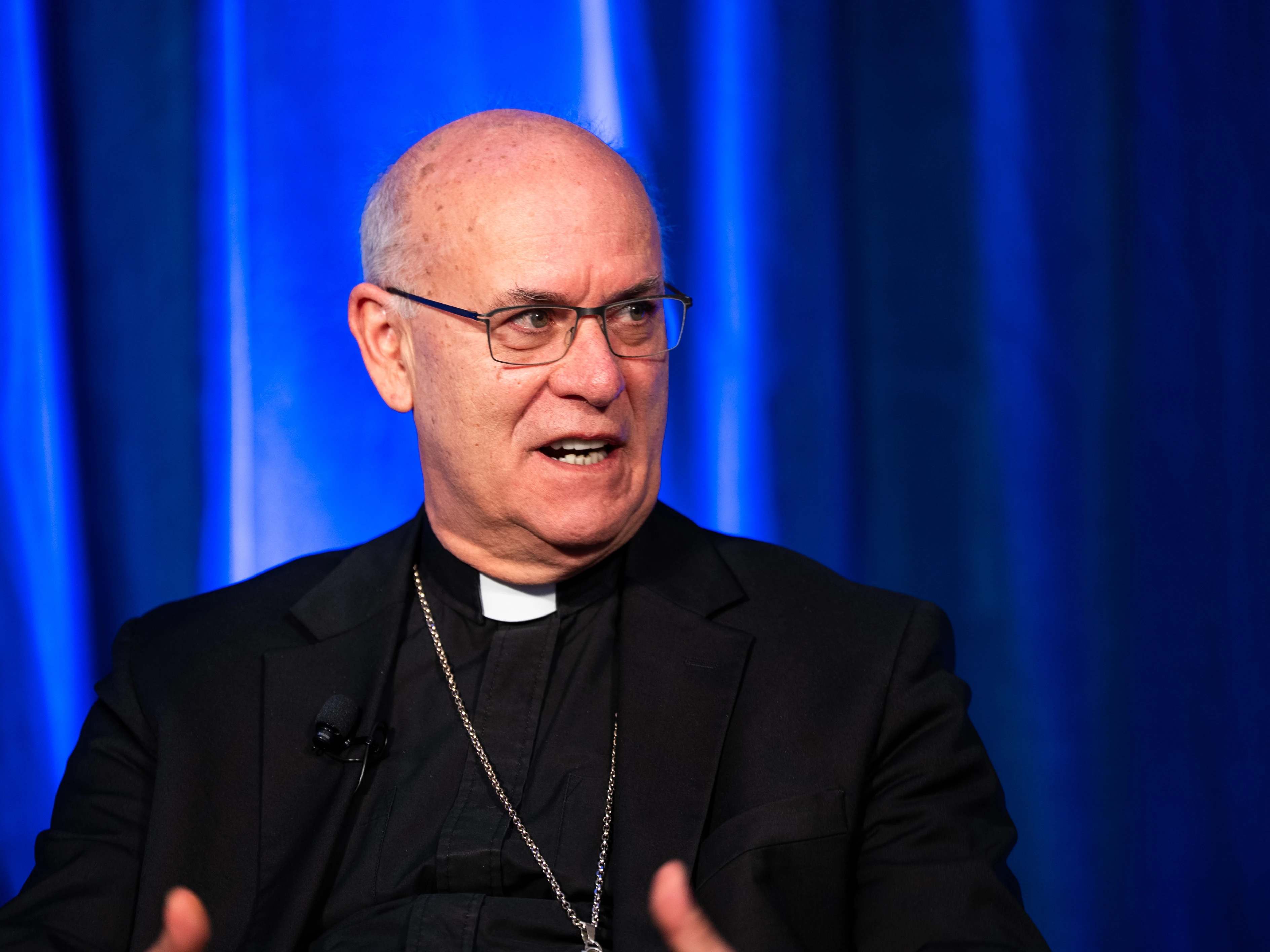
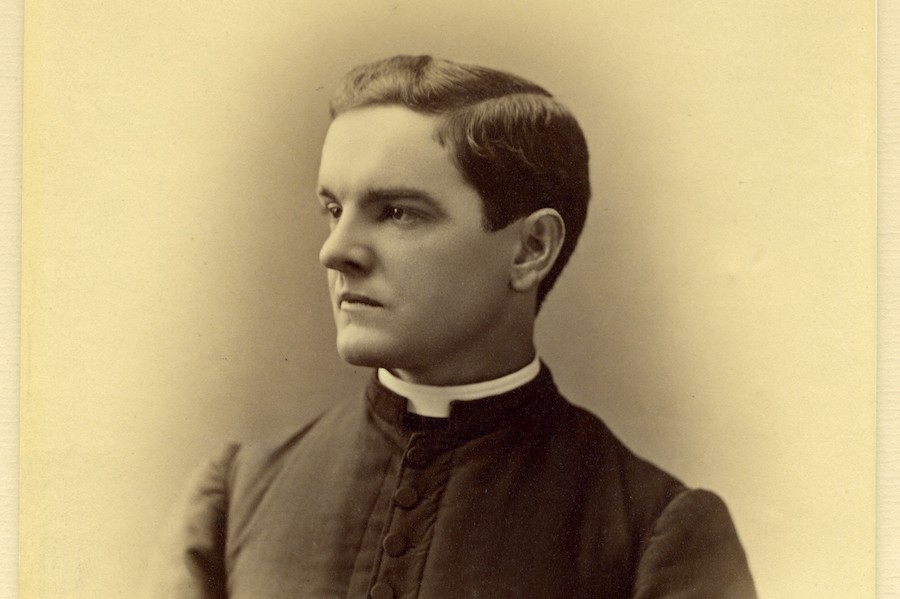
Archbishop William Lori urged Catholics to approach public life with synodal listening and civic virtue, drawing on Blessed Michael McGivney’s example of serving immigrant families.


A Hungarian think tank’s new paper “Migration and Ethics: The Axioms of a Christian Migration Policy” prompts a meeting of the minds.

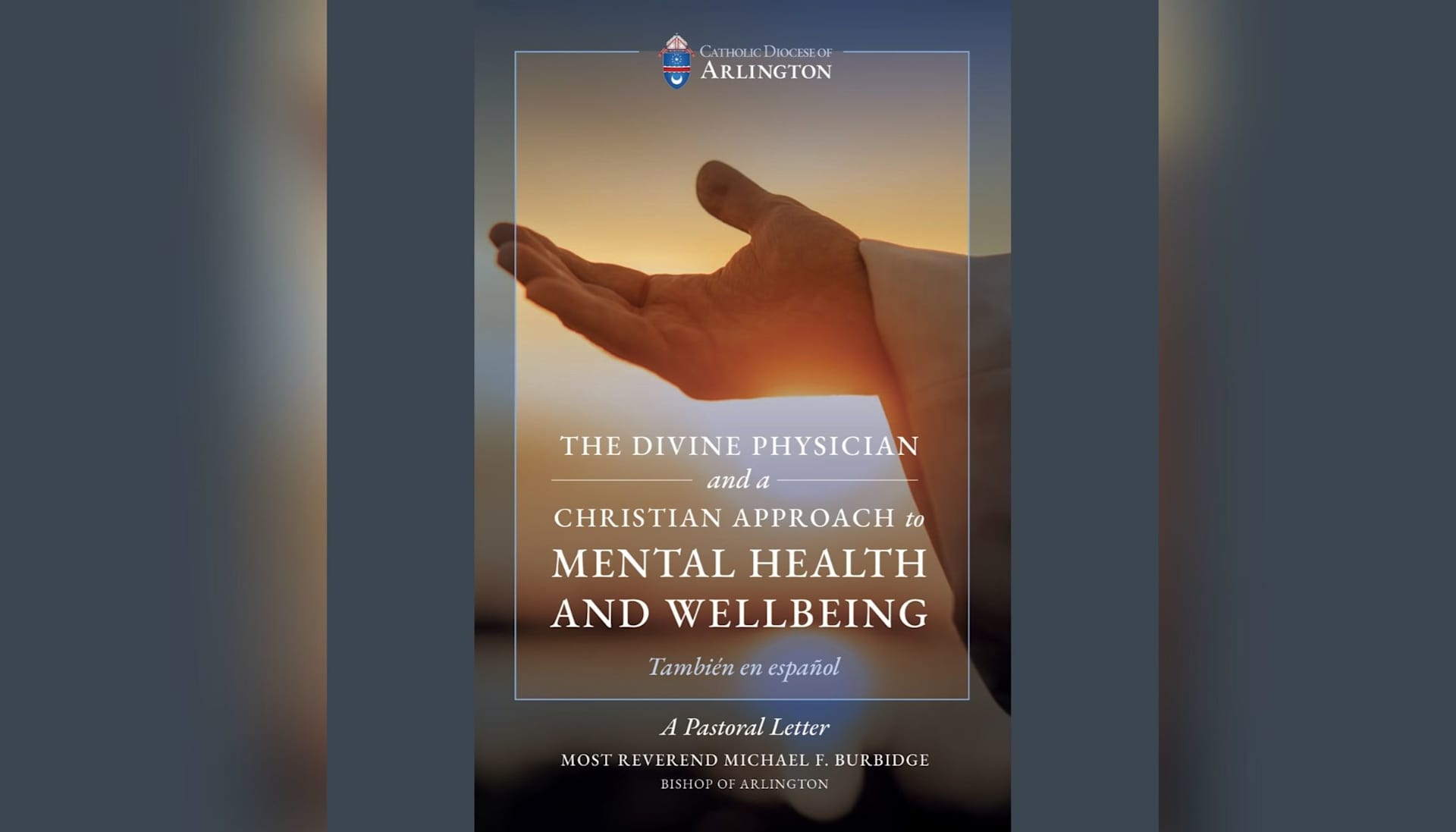
In a recent pastoral letter, Bishop Michael Burbidge addressed what he sees as a “crisis” in mental health among Catholics, especially the young, and seeks to remove stigma over seeking help.
